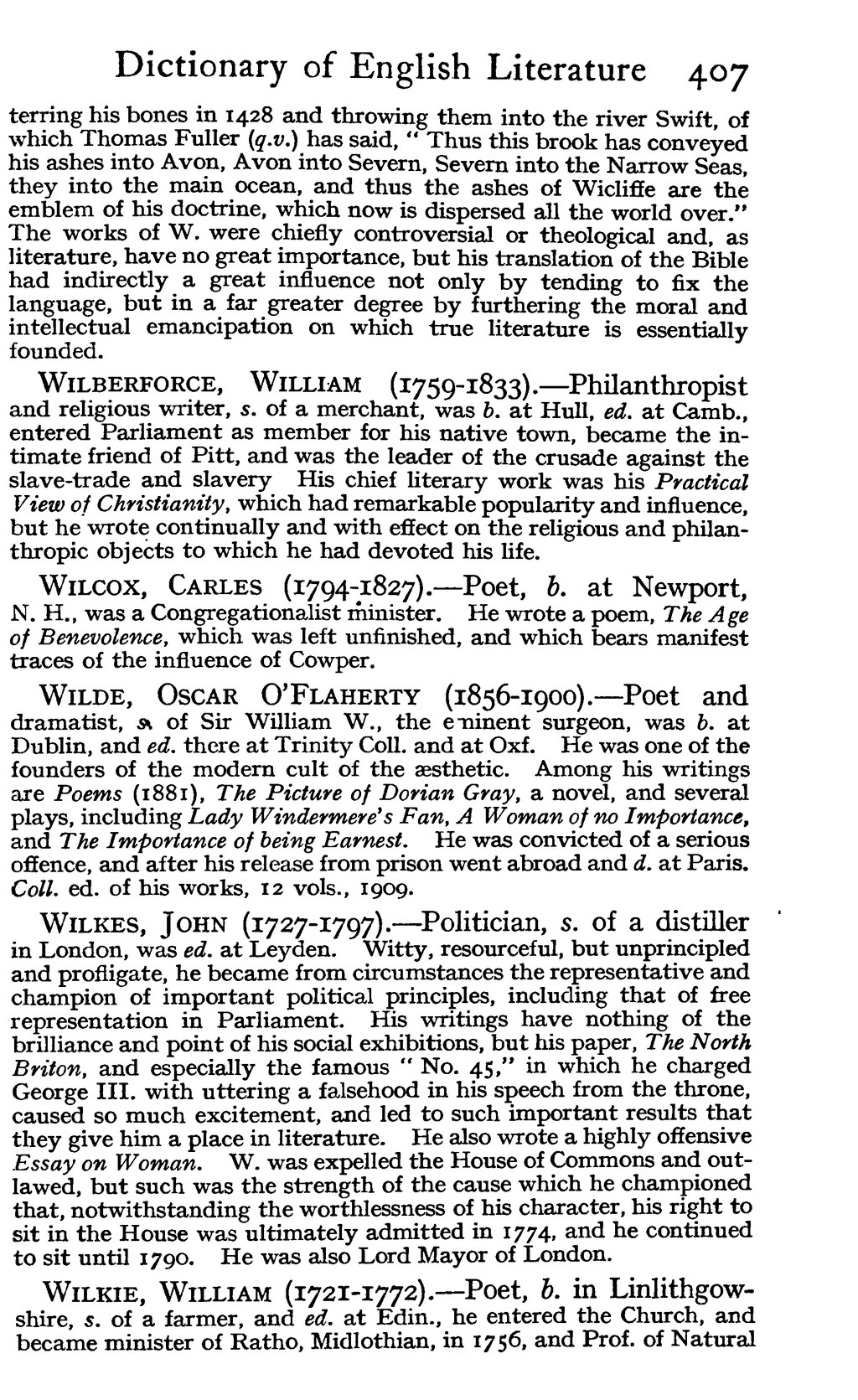terring his bones in 1428 and throwing them into the river Swift, of which Thomas Fuller (q.v.) has said, "Thus this brook has conveyed his ashes into Avon, Avon into Severn, Severn into the Narrow Seas, they into the main ocean, and thus the ashes of Wicliffe are the emblem of his doctrine, which now is dispersed all the world over." The works of W. were chiefly controversial or theological and, as literature, have no great importance, but his translation of the Bible had indirectly a great influence not only by tending to fix the language, but in a far greater degree by furthering the moral and intellectual emancipation on which true literature is essentially founded.
Wilberforce, William (1759-1833).—Philanthropist and religious writer, s. of a merchant, was b. at Hull, ed. at Camb., entered Parliament as member for his native town, became the intimate friend of Pitt, and was the leader of the crusade against the slave-trade and slavery. His chief literary work was his Practical View of Christianity, which had remarkable popularity and influence, but he wrote continually and with effect on the religious and philanthropic objects to which he had devoted his life.
Wilcox, Carles (1794-1827).—Poet, b. at Newport, N. H., was a Congregationalist minister. He wrote a poem, The Age of Benevolence, which was left unfinished, and which bears manifest traces of the influence of Cowper.
Wilde, Oscar O'Flaherty (1856-1900).—Poet and dramatist, s. of Sir William W., the eminent surgeon, was b. at Dublin, and ed. there at Trinity Coll. and at Oxf. He was one of the founders of the modern cult of the æsthetic. Among his writings are Poems (1881), The Picture of Dorian Gray, a novel, and several plays, including Lady Windermere's Fan, A Woman of no Importance, and The Importance of being Earnest. He was convicted of a serious offence, and after his release from prison went abroad and d. at Paris. Coll. ed. of his works, 12 vols., 1909.
Wilkes, John (1727-1797).—Politician, s. of a distiller in London, was ed. at Leyden. Witty, resourceful, but unprincipled and profligate, he became from circumstances the representative and champion of important political principles, including that of free representation in Parliament. His writings have nothing of the brilliance and point of his social exhibitions, but his paper, The North Briton, and especially the famous "No. 45," in which he charged George III. with uttering a falsehood in his speech from the throne, caused so much excitement, and led to such important results that they give him a place in literature. He also wrote a highly offensive Essay on Woman. W. was expelled the House of Commons and outlawed, but such was the strength of the cause which he championed that, notwithstanding the worthlessness of his character, his right to sit in the House was ultimately admitted in 1774, and he continued to sit until 1790. He was also Lord Mayor of London.
Wilkie, William (1721-1772).—Poet, b. in Linlithgowshire, s. of a farmer, and ed. at Edin., he entered the Church, and became minister of Ratho, Midlothian, in 1756, and Prof. of Natural
